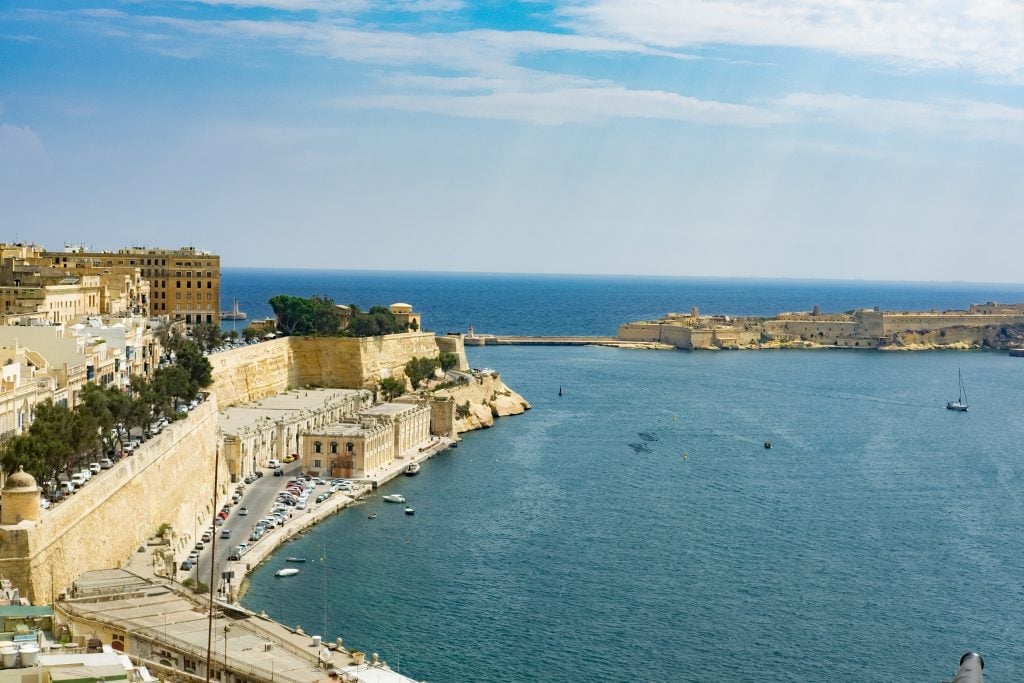First-Time Buyers
Second Time Buyer
Rental Investments
Commercial
Properties in Italy
Renting
Residence & Citizen Programmes
Foreign Buyers
Selling Your Property
Property Development




Purchasing a property in Malta or Gozo as a main residence, a holiday home or as an investment to rent out is a daily occurrence for many people, both local and foreign. Buying a property in Malta is an uncomplicated process and the transfer of ownership can take anywhere from a few weeks to a few months.
Certain costs need to be paid in order to complete the process and part of this will be some kind of tax. We will discuss all the costs you can expect to pay when you buy a property in Malta.
Malta is an investor’s haven when it comes to favourable taxes, but some kind of tax must be paid when it comes to the sale of real estate.
The Duty on Documents Act as well as the Income Tax Act (Cap123) applies to the transfer of any property in Malta. A seller will pay capital transfer tax related to the transfer of any property situated within the borders of Malta while the buyer will pay the stamp duty. The payment of these amounts are subject to factors such as exemptions that may apply, whether there is an affiliation/relationship between buyer and seller and lastly whether any incentives can be applied to the transaction as made available by the Maltese Government from time to time. General costs one can expect are:
The Latin phrases used in Malta for property transfers fall under either Inter Vivos or Mortis Causa. Inter Vivos refers to a property transferred between living persons and Mortis Causa refers to the transfer of a property that is inherited. In this article we mainly deal with details regarding Inter Vivos transfers.

In order for the process to kick off, the services of a notary must be engaged. The buyer and seller can use the same notary to simplify things or use separated notaries, one each of their preferred choice. This is not advised as it may draw out the whole process of transfer. For the sake of this article, we will presume a single notary has been appointed for both parties.
When a buyer decides on buying a property, a Promise of Sale is signed and the buyer will be expected to pay the first 1% of the total 5% of the stamp duty which is calculated on the sales price achieved/transfer value of the sold property, whichever is higher. For example:
Description | Amount in € |
Sold Price Achieved | 400,000 |
Transfer Amount/Value | 360,000 |
Stamp Duty @5% | 20,000 |
Provisional Stamp Duty | 4,000 |
It is the duty of the notary to process all payments on behalf of the buyer, so once the Promise of Sale has been signed the notary needs to present it to the Capital Transfer Duty Section of the office of the Commissioner of Revenue within 3 weeks of the signing date.
The Capital Transfer Duty Section of the Commissioner of Revenue will issue a receipt to the buyer (for the 1% part payment received of the 5% stamp duty) once payment has been received and this will confirm that: 1) the notary has paid the provisional duty and 2) that a copy of the Promise of Sale has been submitted.
When the formal Contract of Sale is signed, the notary has the duty of proceeding to publishing the Deed of Sale and therefore needs to submit a range of documents. All other outstanding amounts will need to be paid as well, some by the buyer and some by the seller. The documents to be submitted and costs to be paid include:
Official receipts will be issued for everything submitted/paid within a period that does not normally exceed 3 weeks from the date of submission of the DDT1 form (Notice of Transfer). At this time, an internal government departmental board will make a decision whether an architect needs to be sent to inspect a property to establish its market value. As valuations are considered to be subjective, a tolerance of up to a 15% difference between what has been declared as the value and the market value is tolerated. Should the difference exceed 15%, the relevant department will issue an assessment claim to both the seller and buyer for the difference.
When it comes to the buyer, this claim will include both the original duty PLUS the additional in duty due (as per the difference estimated by their architect) and a penalty of 20% based on the value difference of the property’s new assessed sales price. If this (the claim) is not paid within a period of three months of being notified, interest will accumulate at a rate of 0.75% for every 30 days of it not being paid.
This reassessment can be challenged with an objection being submitted within 30 days of the assessment date and this may be accepted or rejected at which point it can be further challenged within 30 days of the refusal by means of an Administrative Review Tribunal hearing. Claims that are outstanding and not in the process of arbitration may lead to legal action and additional penalties.

First-time buyers will be eligible for a one-time €10,000 grant spread out over 10 years. The grant will go towards the payment of the buyers’ home loans and will also cover property purchases since the beginning of 2022. The maximum allowed value of the property is €500,000.
If you are looking to purchase and fix up old properties in either Malta or Gozo, or you are buying a property located in an UCA (urban conservation areas), there are several government incentives you should be aware of.
Buyers are now exempt from capital gains tax and stamp duty on the first €750,000 of the value of property, if the property meets any of these criteria:
This measure will be effective till October 2024.
Current and prospective owners of qualifying properties may also benefit from a VAT refund of up to €54,000 on the first €300,000 spent on refurbishment works.
This scheme offers reimbursement of eligible costs related to the restoration and finishing of privately owned residential properties within Urban Conservation Areas (UCAs), properties that have been built for more than 20 years and have been vacant for more than seven years, and new properties that are developed in conformity with approved criteria reflecting older type property features.
First-time buyers who acquire a 20 year+ vacant property, a property situated in UCA or a newly built house using traditional Maltese architecture, will be entitled to receive a grant of €15,000 if the property is in Malta and €30,000 if the property is in Gozo.
Individuals who sell their home to acquire another residential property are eligible to a refund on stamp duty of up to €3,000 (or €5,000 for persons with special needs) provided that they do not own any other property at the time.
Frank Salt Real Estate offers a special package for clients who buy and sell their property within 12 months through the agency. This includes savings of up to €15,000 from selected furniture and finishes suppliers and a cash back of up to €1,000 towards notarial fees, home insurance and the Energy Performance Certificate.
Buyers purchasing their first property as their primary residence do not have to pay stamp duty on the first €200,000. This is equivalent to a maximum saving of €7,000.
Frank Salt Real Estate offers a special package for all first-time buyers who buy their property through the agency, with savings of up to €15,000 from selected furniture and finishes suppliers.
If one purchases a property in Gozo before the end of January 2024, the stamp duty will be reduced from 5% to 2%.

*The above figures are from https://immigrantinvest.com/blog/real-estate-in-europe-prices-taxes-and-maintenance-costs-en/
Looking at Malta VS the countries above, one can surmise that property taxes are an essential component of any country’s economy, contributing significantly to a government’s revenue and Malta is no exception. However, the systems in place in Malta are not only designed to be fair and equitable, with taxes and fees calculated on a property’s value, but also to be extremely advantageous to buyers and sellers alike. These taxes are a necessary means of funding vital public services and infrastructure projects and to help ensure the continued growth and development of any country’s economy.
What makes all the difference in Malta when it comes to real estate and business investments is the country’s overall already advantageous tax regime coupled with especially the initiatives offered by the government and the return on investment the last few years. Malta’s government continues to review and refine the local property tax system to ensure it remains effective, efficient, equitable and profitable for all. Malta truly has been exemplary at leading the EU Block with some of the best returns on real estate investment due to its ground-breaking tax initiatives and policies.
If you are interested in finding out more about buying and selling residential and commercial real estate in Malta or want to discuss the possible savings in taxes that may be available to you, email us on [email protected] or simply fill in the form below and we will contact you as soon as possible!
Disclaimer: The information contained in this website is for general information purposes only. While we endeavour to keep the information up to date and correct, we make no representations or warranties of any kind, about the accuracy, reliability or availability with respect to the website or the information, products, or services contained on the website for any purpose.
 ×
×
We have sent email to [email protected] to confirm the validity of your email address.

